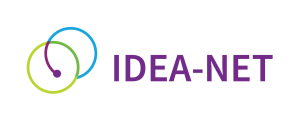University of Constance– Constance, Germany
The activities that the department has carried out (in the last two years) with regard to equal access/inclusion/diversity are:
- support and counselling for students and university staff;
- lectures, workshops, seminars for students, faculty and non-teaching staff;
- public promotion (e.g. production of media content such as podcasts);
- improving digital accessibility;
- language trainings courses for refugees;
- and developing and designing policies to increase university level of inclusion.
At this university, several activities have a great impact. At an individual level, support and counselling will help university members in a direct and measurable way, while public promotion will raise awareness within the community. However, university policy has a long-term impact on goal setting and it is likely that new policies (such as the inclusive leadership policy adopted in 2022) will have the strongest long term impact.
The latest innovative practices and tools introduced at Konstanz University to promote inclusion, diversity, and equal access can be summarized as follows:
Inclusive Leadership Policy (2022): In 2022, the University implemented an inclusive leadership policy applicable to all leaders within the institution. This policy is accompanied by specific training programs aimed at enhancing inclusive leadership skills.
Unconscious Bias Learning Tool (2023): In 2023, Konstanz University introduced the Unconscious Bias Learning Tool. This tool allows University members to independently explore and understand unconscious biases at their own pace, fostering self-awareness and promoting bias mitigation.
In addition to these initiatives to foster inclusion, Konstanz University employs a range of measures and activities to combat exclusionary and discriminatory practices. These efforts are supported by binding policies, strategic action plans, and a set of recommendations and guidelines.
IDEA-net: Expanding the network of Inclusion, Diversity, Equity and Access (IDEA) practitioners in higher education through institutional capacity building
Project ref: 2022-1-NL01-KA220-HED-000089789

This project has been funded with support from the European Commission. This website reflects the views only of the authors, and the Commission cannot be held responsible for any use which may be made of the information contained therein.

